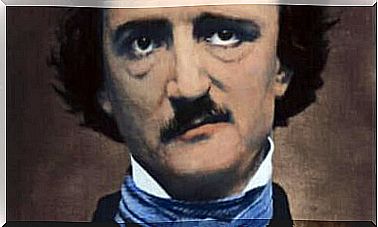For Fear Of Losing You, I Lost You

Often there is no point in making big mistakes to lose or stray from what you love and desire the most. Usually, the simple fear of losing what you care about or need results in unwittingly destroying what you covet.
It may sound ironic, but it is nevertheless true: very often, after hard work to achieve a certain goal or after breaking free from a big battle by overcoming an illness or a relationship crisis, we succumb. This situation is much more common than one might imagine. In the following paragraphs, we will tell you about the biological and psychological reasons for this phenomenon. Finally, we will try to find an answer to the question of how to fight fear by cultivating positive emotions where fear currently resides.
Fear is one of the six basic emotions that we have: fear, joy, sadness, anger, disgust and surprise. These emotions are considered basic because they can be clearly identified in all the cultures studied until today, but also because they allow us to adapt to the fear that surrounds us.

How does fear help us? All emotions play a crucial role when it comes to pushing us towards a goal or on the contrary to moving us away from it. Joy, for example, helps us connect with others and this, in turn, improves our social adjustment and, therefore, our health. On the other hand, the role of fear is that of “avoiding a greater evil” or facing courageously what threatens us and, for this, it is necessary in our daily life.
Fear occurs as a result of a negative or threatening assessment of a situation. In other words, the danger does not have to be real for the fear to invade us. Often it occurs because we feel that the situation exceeds the resources available to carry it out or deal with it.
This phenomenon is known as the feeling of self-efficacy. It is defined as “the perception and the valuation that you make of yourself as possessor of the capacity and the personal resources necessary to face different situations”.
On the other hand, when the fear response is triggered, we observe the following physiological reactions – which facilitate the three basic physical responses: struggle, paralysis and flight:
- Heart rate and blood pressure increase to provide “fuel” for our brain.
- Breathing quickens to oxygenate the muscles in preparation for the leak.
- The secretion of carbohydrates and lipids in the blood takes place to provide energy in the event of a struggle.
- The majority of essential processes are interrupted, such as those carried out by the immunological system or the digestive system, to the benefit of the risk to which the heart and the brain are exposed.
- The muscles begin to tighten and prepare for the action.
This happens when you let yourself be overwhelmed by a problem, a beneficial or neutral situation that you consider to be a threat. This is the mechanism that phobias follow and the one by which, often, we lose what we love the most.
So when we feel that a situation is stressful or threatening, that message gets to our cerebral amygdala which triggers the fear response. The amygdala, in turn, is associated with various memory-related processes, including that of storing our resources, and for this reason, our fears remain.

On the other hand, the evaluation of a situation – as threatening or not – depends on our personality and the estimation of the resources at our disposal ; this is why, among other reasons, some people love dogs and others are afraid of them.
These same reactions can be observed in all the situations where we expect a lot and where we have the feeling that there is “a lot at stake”, which involves all our mechanisms of struggle and survival. This is precisely our cross. Because by activating the reactions of fight, paralysis or flight, we end up escaping the things that make us happier in order to avoid suffering a failure which is however only a hypothesis.
We have almost all seen one of those cult romantic films where the main character lets “the love of his life” go away. Suddenly, he realizes that he lost her, and runs out to tell her that he loves her, but… The plane has already left. Disappointed and sad, he wonders why he let her go when he had everything to be happy. So why don’t you look at your life like it’s one of those movies?
Even if in the first place, we must recognize that fear is an essential emotion, it is still better to regulate it and not ignore or deny it, to identify it and give it the correct meaning. Saying that if you feel bad about the approach of an important professional interview, that does not mean that you do not deserve this position, or that you are a cowardly person. Once you understand and recognize that this is a perfectly understandable reaction, you need to have a clear mind to achieve the best possible interview.
Often times, when we are in a situation where the fear of failure takes hold of us, our thoughts turn into “mental whirlpools or uselessness”. In other words, fear is that “thirst in the desert” which causes the level of physiological activation sufficient as to “see ghosts where there are none”.
So you start to think about things like “my boss is looking at me askance, he / she is going to fire me”, “I’m sure other people are laughing at me”, etc. It’s perfectly possible that our chef had a bad night or their stomach ache, and those who are laughing are doing it because one of them told a funny anecdote.
If you don’t hold on to life, it won’t wait for you. A good idea may be to change the chain of events that caused the last time to fail. If you arrived late for this important meeting, next time protect yourself against the unexpected and arrive with a margin. This will break away from any previous failures you may have had and you will not be able to imagine failure because “there are no similar failures in your memory that you could compare to this particular situation”.
Use all of these things that make you feel more confident. Be confident. Believe, believe in yourself, and if you can’t, focus on that obstacle and get busy rather than worrying. Finally, last but not least, take a deep breath. This will allow you to put your mind back in place and activate your parasympathetic nervous system, which is responsible for “relaxing our organs”. Thus, we inoculate stress and fear.
The only certainty in this chaotic world is that you are the absolute and exclusive owner of your time. However, before you lament for what you did not do out of fear or because of what will be said or because it was too late … tell yourself that you are the only one- e to decide if it is too late or not.
In our opinion, neither the people who criticize you nor those who you think will give you back the years you lose by running away from your dreams. So, live. Live fully. And if the end of the world arrives, let it bring us down by interrupting us in our dance.









